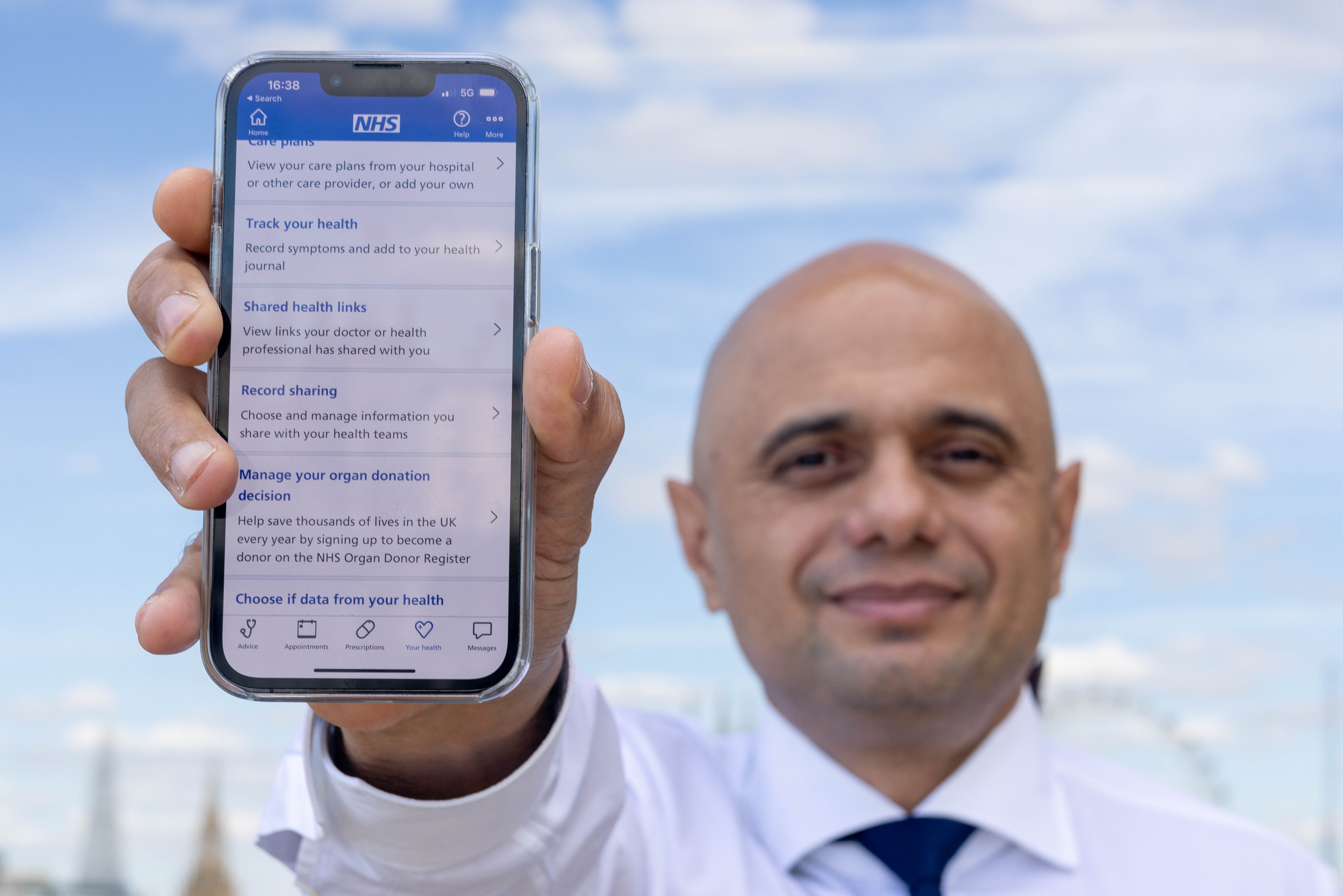Healthcare to undergo ‘digital revolution’ under Government plan
Patients will receive faster and more personalised care thanks to an expanded use of technology, according to the proposals.

Your support helps us to tell the story
From reproductive rights to climate change to Big Tech, The Independent is on the ground when the story is developing. Whether it's investigating the financials of Elon Musk's pro-Trump PAC or producing our latest documentary, 'The A Word', which shines a light on the American women fighting for reproductive rights, we know how important it is to parse out the facts from the messaging.
At such a critical moment in US history, we need reporters on the ground. Your donation allows us to keep sending journalists to speak to both sides of the story.
The Independent is trusted by Americans across the entire political spectrum. And unlike many other quality news outlets, we choose not to lock Americans out of our reporting and analysis with paywalls. We believe quality journalism should be available to everyone, paid for by those who can afford it.
Your support makes all the difference.People across the UK will get better access to their NHS records and receive messages from their GP on their phone as part of Government plans to digitise healthcare.
The plan for digital health and social care, published on Wednesday, also sets out how patients will be able to manage hospital appointments, book Covid vaccines and have virtual consultations through the NHS app by March 2023.
A further 500,000 people are to use remote monitoring to keep an eye on their conditions from home, which will free up hospital beds and frontline workers’ time, the Department of Health and Social Care (DHSC) said.
Ensuring more personalisation and better join up of the system will benefit patients, free up clinician time, and help us to bust the Covid backlogs
By September 2024, patients will be able to complete hospital pre-assessment checks from home.
Health and Social Care Secretary Sajid Javid said: “We are embarking on a radical programme of modernisation that will make sure the NHS is set up to meet the challenges of 2048 – not 1948, when it was first established.
“This plan builds on our data strategy to revolutionise digital health and care, which will enable patients to manage hospital appointments from the NHS app and take more control of their own care at home, picking up problems sooner and seeking help earlier.
“Ensuring more personalisation and better join up of the system will benefit patients, free up clinician time, and help us to bust the Covid backlogs.”
The data strategy announced by Mr Javid earlier this month set out an aim to have three-quarters of the adult population in England registered with the NHS app within the next two years.
Under the latest plan, care teams will be able to better share information through the adoption of digital health and social care records.
Fewer than half (45%) of social care providers use a digital social care record, and 23% of care home staff cannot access the internet consistently at work, according to the DHSC.
Dr Timothy Ferris, national director of transformation at NHS England and NHS Improvement, said the plan “sets out an ambitious vision for a future where the NHS puts more power and information at patients’ fingertips, and staff have the tools they need to deliver better and more joined-up services for those who need them”.
A national digital workforce strategy is to be developed, and 10,500 more positions are to be created in the data and tech workforce as part of several measures aimed at strengthening workers’ skills and making the NHS an attractive place to work for digital professionals.
Dr Pritesh Mistry, digital fellow at the King’s Fund, warned that the biggest risk to the Government’s vision is the “lack of capacity among the health and care workforce”.
“NHS and social care staff are already under intense pressure and many will wonder where they will find the time needed to learn the new skills to use technologies, change organisational culture to work better with tech innovators, and avoid the pitfall of implementing new tech without adequately consulting the staff and patients who will use it”.